前回のガーナの元外交官で政治家であるK. B. Asante博士の言葉(詩の引用など)や社会貢献が、私には大変心に響きましたので、前回の続編となります。
「この暮らしいったい何なの?」と詩人の言葉の引用から始まる内容です。それは時には、立ち止まり見つめ直す機会が必要であり、逆に心配事ばかりでは生活が破綻してしまいます。
まずは、詩の全訳からです。最初のスタンザ(2行)が頻繁に引用されています。
W. H. Davies (1871-1940)
W.H.デイヴィス
「余暇(余裕)ゆとり」
気にかかることが多すぎて、じっと立ち止まり、見つめ直す時間がなかったら、
こんな暮らしは何になのだろう。
木立の下で
羊や牛たちをすきなだけ眺める時間がないなら
木々の間を進み
リスが草むらに木の実を隠す様子に気がつく時間もないなら
広々とした日差しのもと
夜空に煌めく星のように、小川の輝きに気づく瞬間がなかったら
美しい人の眼差しに振り返り
足元とその踊る姿にも見とれる時間さえないなら
彼女の目元からこぼれる微笑みが
その口元へと豊かに伝わるまで、
じっと待っている時間もないなら
気になることがあまりに多すぎて、
じっと立ち止まり、自分を見つめ直す時間がないなら、
こんな暮らしは本当にみじめじゃないのか
これを前提に、アサンテ博士の論調を読み解いてください!
What is this Life?
Written By K. B. Asante.
“What is this life if full of care,
We have no time to stand and stare”
I think the poem sums up the life of many who today find life so full of problems and tensions that there is little, if any time, to relax, think, and enjoy God's bounties.
I know of no religion or philosophy of life which teaches or suggests that human beings were created by a sadistic supreme being. The beauty and bounty of the earth were created for the appreciation, pleasure, and enjoyment of men and women. If there is no pleasure in life then the fault lies with man and not the Giver of life. True pleasure comes from achievement. As communities grow to become large societies, knowledge, understanding and organisation are needed to expand and enrich the bounties of life for the benefit of all.
Leading role
Society rightly appoints representatives to lead in the provision of the good life for all. Unfortunately, many exploit the leadership role. Many support bad leadership provided they benefit from the regime. But truth is indivisible, and eventually when the bad practice continues, values snap at the seams. Our leaders may not be that good, but we the people must accept the ultimate responsibility for their bad deeds. We have the great opportunity at election time to examine the proposals and intentions of our prospective leaders. It is not easy to resolve the problems of modern society. It is not easy for the government to improve the education system and enable the people to acquire satisfying jobs and adequate housing. We the people provide the resources and should insist on the proper utilisation of our taxes and contributions. We should rigorously examine the proposals of those who seek our votes and be suspicious of those who promise so much without any sacrifices from us.
Above all, we should try to understand how the economy works. Our economists, finance and development experts know a lot and we should listen to them. But we should insist that they explain the plans of those they represent. We should be bold to admit what we do not understand and request and ask for further explanation. Often, the experts themselves do not fully understand what they tell us.
We should not be weighed down so much by the cares of life that we have no time to reflect and think.
To go back to the learning of poems at school, at a class examination we were asked to select one stanza of any poem we had learnt during the term, write down the stanza in full, and answer a number of questions about the poem.
Poems at school
Most of us were so weighed down by the fear of examination that we did not stop “to stare and think”. We selected a long poem and had great difficulty in recollecting it exactly, let alone answering well the many questions asked about its meaning, rhythms etc.
A good friend of mine, *RR Amponsah, who is no more, was the only one who was not overwhelmed by the “care” of examination, and therefore, quoted a poem whose first stanza consisted of only two lines:
"What is this life if full of care
We have no time to stand and stare."
The master exclaimed when he returned our marked papers.
“Amponsah, you have got me. I had to give you 9 out of 10, but you did not deserve it.”
Life may be full of cares, but we can make much of it if we find time to be still, reflect, and think.
人生が、仮に心配事ばかりだとしても、私たちが静観し、我が身を振り返りながら考えられる時間さえ見いだせれば、人生から得られるものは多いのだから。
*Reginald Reynolds Amponsah (30 December 1919 – 3 June 2009) was a potter and politician in Ghana.
He was a Minister of State in the Busia government.
以下が、Leisure「余暇(余裕)ゆとり」の全文になります。再度、立ち止まり、じっくりと鑑賞しましょう!
William Henry Davies
Leisure
What is this life if, full of care,
We have no time to stand and stare?
No time to stand beneath the boughs,
And stare as long as sheep and cows:
No time to see, when woods we pass,
Where squirrels hide their nuts in grass:
No time to see, in broad daylight,
Streams full of stars, like skies at night:
No time to turn at Beauty's glance,
And watch her feet, how they can dance:
No time to wait till her mouth can
Enrich that smile her eyes began?
A poor life this if, full of care,
We have no time to stand and stare
追加情報
アリストテレスの墳墓と考えられる建造物が発見
May 26, 2016 Greece Japan.com FOCUS, カルチャー, ギリシャ, ニュース
ギリシャ北部の大都市テサロニキで開催中の「アリストテレス記念年(ARISTOTLE 2400 YEARS)」国際学会で、26日(木)古代ギリシャの哲学者アリストテレスの墳墓であると考えられる建造物が発見されたことが発表された。
アリストテレスの生誕2400年を記念し、ユネスコ(UNESCO)によって「アリストテレス記念年」と定められた今年2016年に、世界各国から集まった250名以上に及ぶ研究者らの前で発表されたこの一報には、アリストテレスの研究者だけでなく世界の考古学者たちからも注目が集まっている。
今回の国際学会はテッサロニキ・アリストテロス大学(Aristotle University of Thessaloniki)のアリストテレス学術研究センター(Interdisciplinary Centre for Aristotle Studies)の主催によるもの。
この歴史的な発見を公表したギリシャ人考古学者コスタス・シズマニディス教授は、みずから発掘に携わり、長年アリストテレスに関する研究を続けてきたスペシャリスト。シズマニディス教授の発表によれば、1996年の発掘によりすでに発見されていた古代の建造物が、アリストテレスの墳墓である可能性が限りなく高いと考えらえれるという。
ギリシャ・ハルキダで没したアリストテレスの遺灰は、彼の生地であり、今回墳墓が発見されたギリシャ北部・ハルキディキ半島のスタギラ(スタゲイロス)に運ばれ埋葬されたと伝えられている。
追悼
ギリシャのハルキディキ海岸で、文芸の大々先輩である*川端律子先生と泳いだあの波間の輝きと、私自身もその先人の英詩の中で詠われたイメージも甦ります。
*<川端律子先生の略歴>
1919年
北海道稚内市に生まれ、札幌市内で育つ。
1943年
同じく北海道(小樽)出身の作家、川端克二と結婚。
翌年、克二は徴兵され、トラック諸島(メレヨン島)にて戦死。結婚生活は、わずか半年の期間であった。敬愛する長兄もフィリピン島にて戦死。
1944年~1979年
教師として勤務。
1979年~2010年
詩人として創作活動に励み、国際的な詩人活動を展開し、多くの国際的な詩人会議に参加して自作を発表し世界の平和を訴える。特にメレヨン島の訪問後は、それまであえて語らなかった戦争と平和の問題に取り組み、英語詩を作成朗読し、体験を語り続けて世界にメッセージを送り続けた。
2010年7月26日 永眠(91歳)
鎌倉霊園に眠る 祈 世界平和










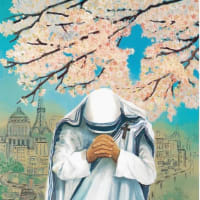
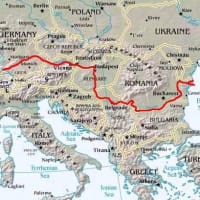

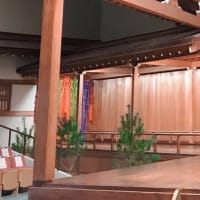
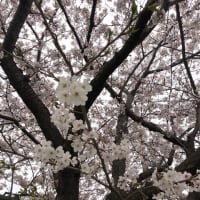
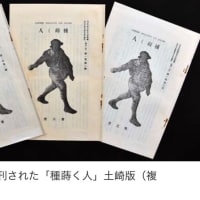

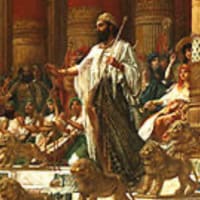
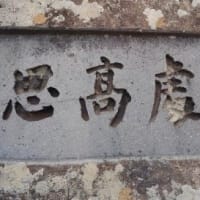
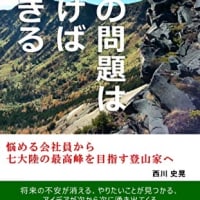
※コメント投稿者のブログIDはブログ作成者のみに通知されます